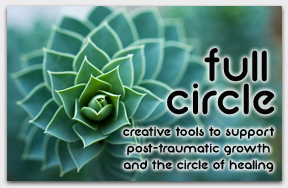Food Stamps, Clothing, Shelter, Medicine: The Dharma of Food Justice
originally published at http://www.turningwheelmedia.org/food-stamps/
My retreating experience and journey to healing my whole self didn’t start as tasty as it sounds above. On the contrary, the first meal I had on the first evening of the People of Color retreat at Spirit Rock was quite unpalatable. I was a single soul, bereft of my own presence and untethered to my existence of awareness, amidst a dining room full of faces that danced and spun, and looked me in the eyes, and threatened to suck me into their wayward plans. I mechanically lifted spoonsful of lentil soup to lips, swallowed without chewing, and attempted to deny the wave of nausea creeping upon me. Lentil by lentil turned to beads of shame and self-consciousness. Then I couldn’t taste anymore, and I was squeezing my eyes and lips shut. Sensing my distress, my sister walked me outside where my wails escaped, and I proceeded to tremble for the next three days.
My first retreat began with a panic attack, which lasted for a full three days as I headed towards facing the grief and shame that unbeknownst to me was waiting. It was too early in my process for me to understand what it was or to recognize that it had started much earlier when I was frantically searching for something to self-medicate with. Which was after spending an hour or so giving my statement to police at the Family Justice Center on 27th Street Oakland, then hastily racing up to Marin County to spend a week in acute post-trauma with a hundred strangers. I have to get there on time, I kept telling myself.
On retreat at the Spirit Rock Meditation Center
And I did get there on time, have the panic attack, and begin my journey to wholeness. After a good two days of eating and sleeping, I made my way to the hall, just in time to hear one of the Dharma teachers tell the story of how she began to heal from sexual abuse and violence while on retreat. Taking her lead, and the seed of a bit of wisdom to root, I began attending retreats no less than bi-monthly, for five days, seven days, ten days, weeks, at any retreat center I could find that was gracious enough to grant me scholarships based on financial need and medical disability. This was how I lived, ate, and breathed for the next two years.
There are a number of reasons why students of the Dharma choose to attend retreat. For many, it is during this time that we have opportunities to find clarity and gain awareness outside of the distractions of daily living. We calm our egos, and listen with more availability to our hearts. Insight is gained whether you strive for it or not. The merit of our practice intertwines with our pain bringing some or much relief from suffering, while rippling into our inner world and out into the world around us. After a year on retreat I began to have these aforementioned positive experiences, however, my initial intention in my retreat practice was simply to have food and shelter as the process of healing unraveled in my life and everything that I knew and could rely on fell away.
I want to emphasize the importance of Food and Eating Meditation in my journey to wholeness. For a person in the trenches of post-trauma, food can and may become an enemy. The many symptoms of a clinical PTSD diagnosis can include an inability to leave the house, complete loss of appetite, excessive numbing through food, extreme digestive discomfort, rapid weight loss/gain, loss of income and resources, just to name a few. When I was in retreat practice mode, I eventually learned that I could use eating meditation to address some of my symptoms. I learned that blessing my food endowed it with the energy to calm anxiety. I found that slowing my consumption and chewing thoroughly dramatically alleviated digestive discomfort. Also, the fact that there were seemingly endless amounts of food on the dining hall table was helpful in granting me momentary relief from the persistent nagging worry of how I would care for myself with no income and a tenacious healing process in front of me.
 As my path in wise livelihood unfolds, I intend to offer my work in gratitude for those who made it possible for me to experience the teachings of the Dharma without cost. The work I do is an expression of my gratitude, and I dedicate my practice in the name of offering sustainable healing tools to my larger communities. I am thankful for the three jewels, the refuge of the Buddha, the Dharma, and the Sangha. I am also thankful for the fresh greens, the whole grains, the ripe fruits, and the variety of dairy-free milks. The practice of gratitude and good eating is one that I truly make my own.
As my path in wise livelihood unfolds, I intend to offer my work in gratitude for those who made it possible for me to experience the teachings of the Dharma without cost. The work I do is an expression of my gratitude, and I dedicate my practice in the name of offering sustainable healing tools to my larger communities. I am thankful for the three jewels, the refuge of the Buddha, the Dharma, and the Sangha. I am also thankful for the fresh greens, the whole grains, the ripe fruits, and the variety of dairy-free milks. The practice of gratitude and good eating is one that I truly make my own.
It is now as an unconventional nutritionist, that I understand why food holds such great power for transformation and liberation. Like anything we consume, food can deliver detoxification and purification, or it can maintain and increase the level of toxins in our internal environment. Depending on what foods we eat, we can feel stress, anger, and physical illness. Or we can feel light, energetic, and well rested because our bodies are being supported in their natural inclination toward moving us through the process of healing. For this reason, food can become a tool for anyone at any stage of living and healing. My work focuses specifically on how food and nutrition support the release of trauma on a cellular level.
As many of us know from our work in food and environmental justice, there are a number of folks who are not being exposed to high-quality affordable nutrient-rich foods. The reason behind this stems from profit-driven corrupt food and agriculture policies, and our own internalized beliefs about food and our environment. This is a piece of a pattern of marginalization and colonization that has been historically implemented and in some ways and places continues today. The quality of our food (and everything else we consume) directly effects our capacity to perform as activists, healers, workers, artists, friends, parents, partners, and otherwise. Our self-sufficiency and ability to determine our own lives is directly tied up with our food practice.
From my own early childhood experience I know one of the ways that nutrition looks in a low monetary resourced home. Our cabinets were never empty because they were stocked with processed, nutrient-deficient filler foods. Eating fast food felt like a triumph because the dollar menu encouraged us to think that we were getting an unbeatable deal. Organic and health food markets were out of our reach because they were sadity (Black American cultural colloquialism meaning high class or putting on airs) and overpriced and most often not in the direct neighborhood.
 These are the archetypes of poor eating that I address directly with my work around nutrition. Might I point out that my exposure to great food didn’t happen as a result of becoming monetarily wealthy. I was broke, sick, and victimized. Yet during the most difficult time in my life, the veil around food privilege was slowly lifting itself from my eyes.
These are the archetypes of poor eating that I address directly with my work around nutrition. Might I point out that my exposure to great food didn’t happen as a result of becoming monetarily wealthy. I was broke, sick, and victimized. Yet during the most difficult time in my life, the veil around food privilege was slowly lifting itself from my eyes.
During the period of my trauma reaction, for what seemed like an insurmountable and unending period of time, my income resources did not improve. They actually continued to wane as I lost my apartment, self-employment income, and the community I had once trusted. Then, just to test my practice, my food stamp allotment came under attack, as it so often does for those of us who rely on government assistance. All the while, it appeared as though the powers that be were systematically denying my application for victim/witness compensation, and my disability case was far from approved.
While moving through this period I was getting healthier, eating more, having better food sources, and learning to prepare foods that improved my mental health and allowed me to have my process without having to choose pharmaceutical intervention, which is sometimes a necessary option. With this experience I have come to know that it is possible for us to plant the seeds of liberation through individual and widespread shifts in our approach to eating. Our suffering is imprinted in our cells. Food and diet change mindbodyheart on a cellular level. Food is liberation.
We aren’t necessarily always healing an acute trauma. However, in our liberation trajectory, we must address myriad historical traumas of injustice. I am not the first to theorize that our cells are capable of retaining trauma from previous generations. When we think we can’t afford good food, could that be just an old thought that our colonized ancestors experienced during the trauma of chattel slavery or perpetual exile?
Through those countless days I cried on retreat and at home about what I didn’t have, I wasn’t yet able to see everything that was there to support me. As I mentioned above, the actual amount of money in my bank accounts did not increase as my health and wellbeing did. What increased was my skill in identifying helpful foods, and my new thoughts around the sufficiency of $200 in food stamps. I also knew that I could take refuge at the feet of the Buddha when it was all too overwhelming, and that I would begin again each day with a fresh plate of incredible food. With the experience of the anxiety of running out of food, being on retreat was especially helpful toward the end of the month when the EBT was all gone. Since the typical food stamp benefit amount is modest, there is usually a period of time before the beginning of the new month when the old benefits have been used but the new benefits have not yet arrived.
Photo by Jidan Koon
In retrospect, I recognize how the Dharma initiated my food justice work. The philosophy of offering the teachings (and food) freely made healing accessible for me. I’m excited when I think of how offerings like food stamps and other government assistance have the potential to play this role in the lives of millions. While the Buddha began his journey as a prince before he could renounce his wealth and find true freedom in the wisdom of suffering, my story is different. Having experienced the world from scarcity, it took the violent loss of everything I had before I became truly rich in health, spirit, Sangha, and the prosperity flowing through my life. The awakening I experienced during years of retreating lead me to fully embody the truth of the cessation of suffering. This insight, gained through deep pain, brought me to the understanding that our experiences need not be defined by external circumstances. I believe this is also possible for anyone who has ever doubted themselves or their abilities when facing life-altering challenges. The Buddha taught us that liberation is our birthright. May our food practice be a tool to guide us to freedom, for our ancestors, descendants, our universe, and ourselves.
Epilogue
“My Food Stamps Prayer,” from My Food Stamps Cookbook by rachel bolden-Kramer
Bless all the hands that touched this food, those who grew it, those who transported it, and those who prepared it. May this food be cleansed of negativity and anger, and may we eat to sustain ourselves so that we may be forces for the transformation of suffering. May we eat to heal, taking only that which is necessary to support our energetic needs. May we give thanks for the strength we exuded to bring this food resource to our table. We give thanks to the ancestors who made it possible for us to be here today, and to our descendants, the generations that follow, who will reap the benefits of our healing.
———————————
__
Rachel Bolden-Kramer is the creator of HipDhamma.com, which is the home of her unique yoga and nutrition work. Teachings from her forthcoming book, My Food Stamps Cookbook, can be found on her blog, and she also offers individual coaching in moving from scarcity to sufficiency for people at all levels of income and resources. Rachel lives in BedStuy were she creates innovative yoga/mindfulness/movement arts programs for the kids, and family-friendly nutrition education for the folks. Follow @HipDhamma.








